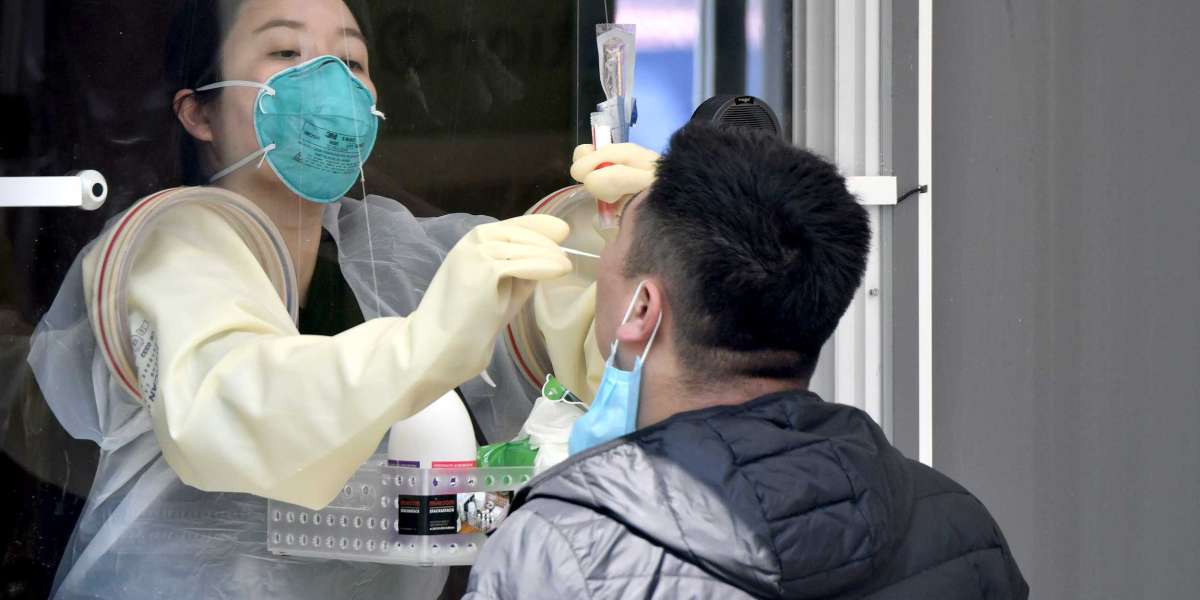COVID- The number of fatalities in South Korea has risen to record levels, and the country is preparing to live with omicron despite the continued increase in the number of deaths.
During this time, as the country tries to come to terms with omicron, COVID-19 mortality are surging to record highs.
According to the Korea Disease Control and Prevention Agency, 114 COVID-19 fatalities occurred in Korea in the last 24 hours, which ended at midnight on Sunday — the largest number of deaths recorded so far since the pandemic began. COVID-19 fatalities have increased from 49 per day the previous week to an average of 86 per day during the preceding week.
During the same time period, the average number of daily cases increased to 153,756 from 87,457, with an increasing proportion of them affecting older persons (see chart). The current seven-day average of patients in their 60s and older was 18,560, over doubling the previous week's figure of 9,199 individuals in this age group. Patients in their 60s and beyond account for around 13% of all diagnosed patients throughout the course of a week.
1303 of the 2,704 critical care beds for COVID-19 patients had been filled as of 5 p.m. Sunday, according to the Centers for Disease Control and Prevention. However, only 607 individuals were officially classified as severe to critical, according to the data. In response to this shortage, the Ministry of Health and Welfare stated that many critical care beds had been taken up by verified patients who were in need of rigorous treatment for other conditions such as cancer or a stroke.
"A large number of these patients, although testing positive for COVID-19, are in the intensive care unit for reasons other than COVID-19." They are not classed as severe or serious COVID-19 instances, as a result, according to Park Hyang, a senior ministry official.
"When compared to the delta wave, the absolute number of deaths has increased tenfold," says the report. "As I've already stated, among those who have received vaccinations, the case fatality rates have plummeted below seasonal flu norms," she added. "If you are completely immunized against omicron, the hospitalization and fatality rates are equivalent to those seen with seasonal influenza." Unvaccinated persons, on the other hand, are five to seven times more likely to die from omicron than they are from the flu."
With just half of the COVID-19 intensive care units occupied, Park stated that the hospitals were in good working order.
However, despite the guarantees provided by officials, reports of out-of-hospital deaths, the numbers of which are not officially recorded, continue to be received from around the country.
First responders discovered the body of a 62-year-old man at his residence in Eunpyeong-gu, northwestern Seoul, at approximately 6 p.m. on Sunday. He had been living alone in the area for some time. The results of the test came back positive four days before his death on February 22. Considering that he was above the age of 60 and had underlying medical issues, he was classed as requiring "intense supervision."
On two separate instances last week in Gangdong-gu, eastern Seoul, a lady in her 80s with Alzheimer's disease and a guy in his 50s with sight impairment were found dead on the street in the same neighborhood. In postmortem exams, both were found to be positive.
The deaths of two newborns, both less than a year old, occurred over the course of a week in Suwon, Gyeonggi Province, while the families were on their way to get a hospital room.
In the words of Dr. Eom Joong-sik, an infectious disease expert at Gachon University Medical Center, "What is actually happening in hospitals is not represented in the decision-making process."
Due to the growing strain on hospital personnel as a result of the outbreak, several unoccupied beds have been placed on "standby." Staff members who would be responsible for caring for patients are also distancing themselves because of COVID-19, according to the expert.
Over the weekend, around 20 patients who presented to the Gachon University Medical Center's emergency department were identified as COVID-19 cases, considerably outnumbering the number of isolation beds available in the ER, according to him.
"The rules that are currently being adopted are aimed at eliminating limitations and allowing regular life to resume." "I'm not sure what to tell you, but this is beyond our ability to handle."
During a press briefing on Monday, the head of the national health protection agency, Jeong Eun-kyeong, stated that the current increase is "anticipated to peak between early and mid-March."
The number of cases in Korea might reach 230,000 each day by the second week of next month, with 1,200 individuals being admitted to hospitals with severe or critical sickness, according to Dr. Jeong.
Dr. Kim Woo-joo, an infectious disease expert at Korea University Medical Center, said it was "unwise and counterintuitive" to lift limitations while the wave was still cresting. "If we don't take steps to halt the spread, it's like letting hospitals deal with the flow of patients on their own," he explained.



